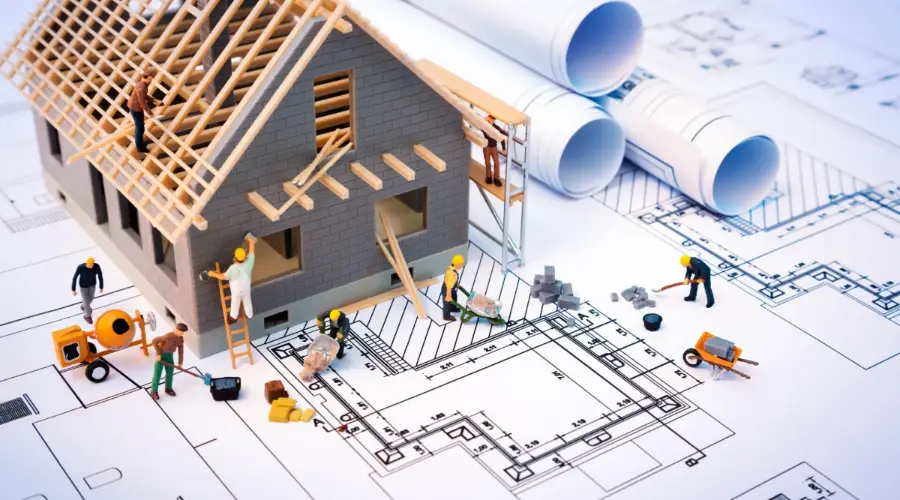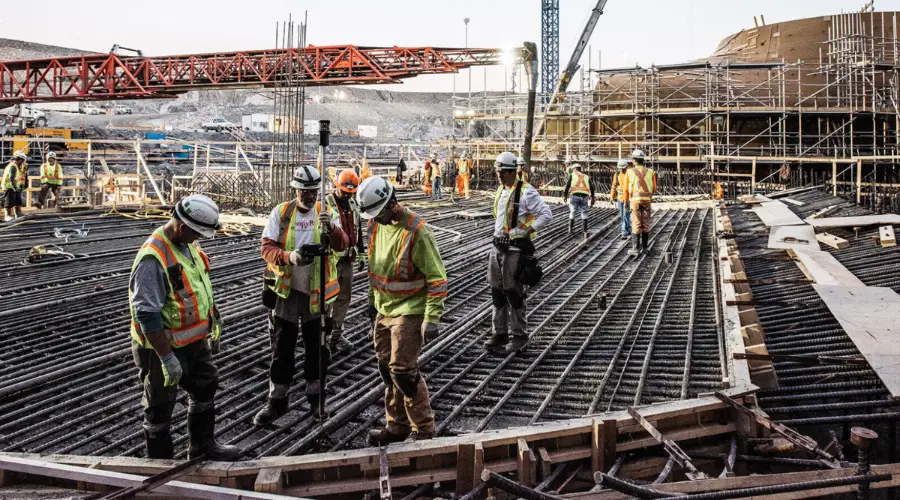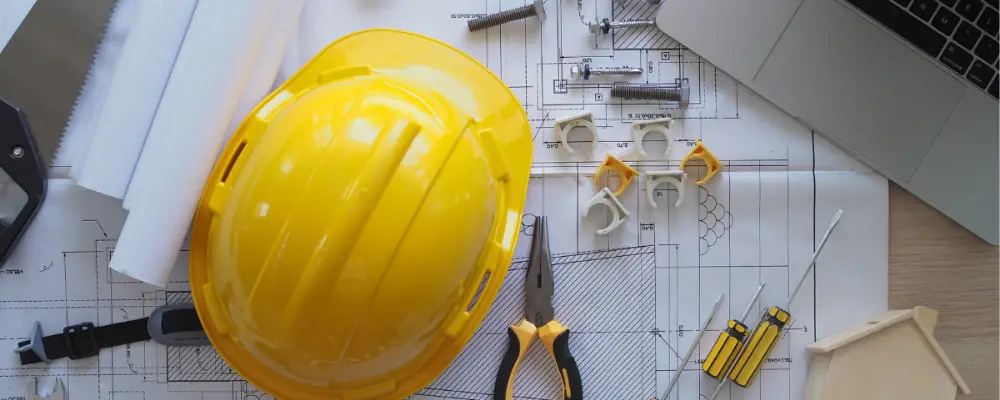When embarking on construction, be it a new commercial space, residential home, or extension of an old structure, homeowners or business owners may have to make up their minds whether they can manage the project by themselves or hire a professional civil contractor. The duties of a civil contractor in the construction sector include everything from preliminary planning and budgeting to the final delivery to the customer. Employing a qualified civil contractor helps ease clients’ or business owners’ concerns regarding the project’s advancement. These contractors assume complete accountability for overseeing the project from start to finish.
This article will explain the many kinds of civil contractors as well as their functions and duties when working on a building project. Making educated decisions and comprehending the advantages of working with qualified civil contractors may be made easier with this.
What are Civil Contractors?
Civil contractors are professionals or companies responsible for managing and executing civil engineering construction projects. Civil construction encompasses the planning and development of essential infrastructure that shapes our built environment. These projects often include public infrastructure works that serve communities and may be funded by government bodies.
These consist of:
- Highways and roads
- Tunnels and Bridges
- Railroads, airports, and water treatment facilities
- Reservoirs and dams
- Power plants
- Public green spaces
- Utility projects, such as pipelines and sewers
Advances in technology have made projects faster and more efficient, supporting essential needs and helping people connect and access resources.
Types of Civil Contractors
The primary categories of civil contractors are as follows:
General contractors:
They are responsible for managing all construction-related operations, including those involving personnel and subcontractors. Scheduling and ensuring the quality of the work can be done by the general contractors.
Subcontractors:
A subcontractor is an individual or company hired by general contractors to complete specific parts or the entirety of a project. They bring skilled professionals to manage specialised work such as plumbing, carpentry, electrical installations, and HVAC system setup.
Design-Build Contractors:

Design – Build contractors provide a more thorough and effective approach by managing the project’s design and construction phases.
Engineering Contractors:
They pay close attention to the structural, mechanical, and electrical engineering components of civil projects.
Heavy Civil Contractors:

Heavy civil contractors are involved in building highways, bridges, airports, tunnels, and dams for utility purposes.
Utility contractors:
They are experts in sewage, gas, and water system installation and upkeep.
Environmental Contractors:
Environmental contractors are engaged in projects that save the environment, such as water treatment facilities, waste management systems, and land reclamation.
Road and Highway Contractors:
These contractors specialise in developing and building India’s most crucial roads, highways, and transportation infrastructure, which are ultimately beneficial to the country’s economic growth.
Water Resource Contractors:

Water resource contractors are helpful in designing infrastructure for water, such as flood control systems, reservoirs, dams, and water treatment facilities.
Roles and Responsibilities of a Civil Contractor
One of a civil contractor’s tasks is to supervise all aspects of construction to ensure that projects are completed on time, within budget, and according to plans. The primary duties are as follows:
Planning and Managing Projects:
- Thorough budgets, schedules, and plans can be made by a civil contractor.
- To fulfil deadlines and preserve quality, assignments are assigned progress is monitored.
Setting Up the Site:
- Verify that the materials fulfil the specifications and arrive on schedule.
Purchasing and Managing Materials:
- Invest in the equipment and supplies you’ll need.
- A civil contractor has to manage the supply of materials to the construction site promptly and meet the requirements early.
Observance of Legal Obligations:
- Obtain permissions and abide by local safety, environmental, and building requirements.
Coordination of the Team:
- Employ and oversee employees and subcontractors.
- Ensure effective team coordination and adherence to safety regulations.
Safety and Quality Assurance:
- Regularly check work to make sure safety procedures are being followed and to satisfy quality requirements.
Budgeting and Cost Control:
- Control project spending and make sure it doesn’t go over budget.
Resolving Issues and Managing Risk:
- Address any problems, delays, or hazards that occur while the project is being built.
Reporting and Communication with Clients:
- Provide clients with frequent updates and make sure their issues are taken care of.
Final Examinations and Transfer:
- Before delivering the project to the client, make sure all documentation is completed and conduct final checks.
Skills and Qualifications of a Civil Contractor
Qualifications for a Civil Contractor:
- Completion of at least a 10+2 education, preferably with a focus on physics and mathematics.
- Higher education or vocational training in civil engineering, architecture, or construction management.
- Hands-on work experience in construction through roles like an intern, trainee, or junior project manager.
- Understanding of cost estimation, subcontractor coordination, and quality control.
- Registering a business with the proper authorities and adhering to labour and tax regulations.
- Required certifications and licenses, including tax registrations, building permits, and contractor licenses.
Key Skills:
- The crucial key skill for a civil contractor lies in managing the project efficiently with effective planning, coordinating, and executing projects.
- A skilled civil contractor can do accurate cost estimation and control expenses of the project to stay within budget.
- Experienced civil professionals are well versed in understanding the regulations and ensuring projects comply with building codes and safety standards.
- They can easily understand different types of construction methods, various material use, and problem-solving techniques on construction sites.
- Additionally, their indispensable negotiation skills secure favourable terms with clients, subcontractors, and suppliers.
These skills and qualifications equip civil contractors to handle construction projects effectively, ensuring quality, safety, and client satisfaction.
Benefits of Hiring a Professional Civil Contractor
Expertise and Experience
Contractors ensure high-quality work by using their knowledge of building codes, materials, and techniques to avoid common mistakes.
Time-Saving
They manage the project efficiently, freeing you from daily involvement and ensuring timely completion.
Cost-Effective
Contractors save money by sourcing materials at lower costs and preventing expensive mistakes while staying within budget.
Access to Subcontractors
Their network of skilled professionals guarantees quality work and smooth coordination across all aspects of the project.
Compliance and Permits
They handle complex legal requirements, ensuring your project meets all regulations and avoids penalties.
Risk Management and Safety
Contractors follow safety protocols and carry insurance, reducing risks and protecting you from liabilities.
Warranty and Aftercare
Their work comes with warranties, offering post-project support and accountability for any issues.
Stress Reduction
Contractors simplify the process, reducing your stress and enhancing your experience by handling decisions and challenges.
What’s the Difference Between Civil Construction and Commercial Construction?
Several differences between civil construction and commercial construction are as follows:
| S.No | Aspect | Civil Construction | Commercial Construction |
| 1 | Purpose | Focuses on government and community projects, like water structures, sewage systems, and heavy industries such as shipyards. | Focuses on building structures for business purposes, such as offices, malls, stores, factories, and hotels. |
| 2 | Type of Projects | It comprises constructing parks, power plants, roads, bridges, railroads, airports, dams, and utility projects (such as pipes and sewers). | It consists of establishing retail outlets, office buildings, shopping centres, hospitals, hotels, warehouses, schools, and industrial facilities. |
| 3 | Design Focus | Prioritises economical, environmentally friendly designs with long-term public utility and durability. | Prioritises efficient designs for business needs, with centralised electrical, HVAC, and plumbing systems for tenants. |
| 4 | Supporting Infrastructure | Geared towards specialised equipment and materials that minimise community disruption and manage project complexity. | Centralised services like HVAC, plumbing, and electrical systems are tailored for tenant convenience and operational efficiency. |
| 5 | Funding and Oversight | Typically funded by governments or large corporations, with heavy regulatory oversight and subject to politicisation. | Primarily privately funded by business owners or investors, focusing on cost efficiency and faster completion for profitability. |
| 6 | Regulations and Requirements | Stringent government regulations, public safety standards, environmental sustainability, and long-term planning compliance. | Zoning laws and building codes are critical, with increasing adoption of green building standards like LEED certifications. |
Conclusion
In the construction sector, civil contractors play a crucial role in managing projects, preparing sites, and constructing. Their proficiency guarantees the rapid and seamless completion of tasks. Hiring a qualified civil contractor can help you stay on schedule, within budget, and meet quality requirements when you’re planning a construction project. They also guarantee adherence to safety rules and offer professional guidance to ensure the success of your project.

